Published by The University of Alberta Press Ring House 2 Edmonton, Alberta, Canada T6G 2E1 www.uap.ualberta.ca Copyright 2018 Alice Major LIBRARY AND ARCHIVES CANADA CATALOGUING IN PUBLICATION Major, Alice, author Welcome to the anthropocene / Alice Major. (Robert Kroetsch Series) Poems. Issued in print and electronic formats. ISBN 9781772123685 (softcover). ISBN 9781772123975 (EPUB). ISBN 9781772123982 (Kindle).
ISBN 9781772123968 (PDF) I. Title. II. Series: Robert Kroetsch series
| PS8576.A515W45 2018 | C811.54 |
| C20179067974 |
| C20179067982 |
First edition, rst printing, 2018. First electronic edition, 2018. Digital conversion by Transforma Pvt.
Ltd Copyediting and proofreading by Peter Midgley. Cover design by Alan Brownoff. A volume in the Robert Kroetsch Series. Cover image: David Spriggs, Vision , 2010. Acrylic paint on multiple sheets of transparent film in display case, 264 x 315 x 91 cm. Used by permission All rights reserved.
No part of this publication may be produced, stored in a retrieval system, or transmitted in any form or by any means (electronic, mechanical, photocopying, recording, or otherwise) without prior written consent. Contact the University of Alberta Press for further details. The University of Alberta Press supports copyright. Copyright fuels creativity, encourages diverse voices, promotes free speech, and creates a vibrant culture. Thank you for buying an authorized edition of this book and for complying with the copyright laws by not reproducing, scanning, or distributing any part of it in any form without permission. You are supporting writers and allowing the University of Alberta Press to continue to publish books for every reader.
The University of Alberta Press gratefully acknowledges the support received for its publishing program from the Government of Canada, the Canada Council for the Arts, and the Government of Alberta through the Alberta Media Fund  For David, again and always Contents
For David, again and always Contents  In medias res Alas poor child, youre born in medias res the stage is set with swirling depictions of a globe in panic, small rainbow-coloured frogs hopping into oblivion, a scene of smoggy atmospheres, vast gyres of plastic churning in the ocean, Scylla and Charybdis, sailors screaming from their boats, soldiers raising fists, battle-dressed for costumed wars. And you have got to figure out the script. Its that recurrent nightmare of being unprepared, of never having studied and now its curtain time. That dream is just our human situation the only plot weve got in this play without an author. Were writing it ourselves. And I cant help you.
In medias res Alas poor child, youre born in medias res the stage is set with swirling depictions of a globe in panic, small rainbow-coloured frogs hopping into oblivion, a scene of smoggy atmospheres, vast gyres of plastic churning in the ocean, Scylla and Charybdis, sailors screaming from their boats, soldiers raising fists, battle-dressed for costumed wars. And you have got to figure out the script. Its that recurrent nightmare of being unprepared, of never having studied and now its curtain time. That dream is just our human situation the only plot weve got in this play without an author. Were writing it ourselves. And I cant help you.
I am just another figure in the chorus of greying heads, wringing her hands or pointing to a star. Sorry to be useless, but that is what we are. Dear child of fortune, born today into the middle of things, break a leg. Dont look for gods descending in a basket, or prompters in the wings. Declaim one memorable soliloquy. Turn a spotlight.
Or pick up pelting litter from the stage. There is no ending, happy or otherwise. Just play your part.  Welcome to the Anthropocene In pride, in reasning pride, our error lies; All quit their spheres and rush into the skies. ALEXANDER POPE, An Essay on Man Welcome, you line of dogs whose sizes span the gamut from gargantuan Great Dane to Lilliputian chihuahua. And welcome, Freckles the goat, to our expanding album of post-natural creation your milk seeded with proteins from arachnid silk, orb-weaver spiders woven in your genes.
Welcome to the Anthropocene In pride, in reasning pride, our error lies; All quit their spheres and rush into the skies. ALEXANDER POPE, An Essay on Man Welcome, you line of dogs whose sizes span the gamut from gargantuan Great Dane to Lilliputian chihuahua. And welcome, Freckles the goat, to our expanding album of post-natural creation your milk seeded with proteins from arachnid silk, orb-weaver spiders woven in your genes.
Welcome to the Anthropocene, Black-6 Mouse, your myriad descendants scrabbling in labs, bred for their resemblance to each other and to us: a tendency to age-related hearing loss; efficiency in breeding but erratic parenting; willingness to drink booze; inheriting a sensitivity to pain and prone to biting. Your murine chromosomes are known to the smallest nucleotide and carbon-copied endlessly a kind of immortality that weve bestowed by making you so uniform you flow indistinguishable as plastic beads. Welcome transgenic zebrafish. Your shades of trademarked colours Starburst Red, Electric Green, and Cosmic Purple bred to decorate caf aquariums in colour schemes to match our rainbow whims. Welcome, also, to the dumbed-down denizens of Bottle 38 you specimens of Drosophila we have knocked about with mutagens designed to cancel out the gene-made protein that would let you learn. We might ask what it is that we have learned from setting out this biological array, our manufactured freak show.
Outr artificial creatures, genetic lines weve crossed and re-crossed far too many times in our compulsive drive to flout all natural order. The dogs with snouts so short that they can hardly breathe. Hens bred to dreadful uniformities of shape and size, no variations wanted. We itch to think of spider bits implanted in lactating mammals. This mad caprice of test tubes makes us shudder. Poor beasts.
Poor beasts. We have been rattling The Great Chain of Being. Feckless godlings, were inflamed by our capacities, creating mice in our own image, trying to entice genes to jump with tickled transposons and scraps of virus. We have good reasons, so we claim, for meddling: improved tomatoes, new vaccines or fuel for our autos. But is it not the sin of pride that we express? Hubris personified? We will not admit to limits, will not hold back rash action for sober thought about the unintended consequences of what weve set in motion, the immenseness of what our broken chain links might turn loose chaotic spiralling of feedback loops, exponential impacts. We dont believe, these days, that God rebukes presumption.
Weve given up on that great, heavenly anchor on which the chain depends, dont fear the anger of omniscience. But we are not gods who know the outcomes that we set abroad. And, though hubris always teeters at the very edge of tragedy, we will not look up from the page that we are scribbling too busily to think of ends. Meanwhile, our bestiary of created things looks sadly back at us from beyond the paling of our apparatus. All are but parts of one stupendous whole And yet our pug dogs snore contentedly beside our beds. Theyre temperamentally incapable of resenting two square meals a day, a waddle in the park.
And Freckles feels quite normal, thank you. Her silk-kids frolic and munch their premium hay. Alcoholic mice are rarely on the street panhandling crumbs. The GloFish in their safe aquariums dont care that theyre conspicuous. No predators to dodge. And as for us, our chromosomes are stuffed with our mlange of post-natural genetics.
Its just as strange, really, that our box of HOX and PAX is shared with chimp and fruit fly, all these swaps transferred from philandering bacteria: the opsin molecules that line our retina, the collagen granted us by sponges, the histone strands we get from fungus and share with lamprey, shark and kangaroo. The Great Chain of Being links us true. But its not a ladder to the angels. Its a horizontal loop that rearranges life repeatedly. Its still ongoing protists leaving bits behind, a snowing of genetic flakiness thats not man-made. Not chain, not ladder were relatives, a clade.
The planets been a boiling Petri dish of life since long before those lobe-finned fish crawled shorewards half a billion years ago to breathe in air, dragging a portmanteau already stuffed with DNA in use by clams and algae and handed on to us to rummage through. Why get excited over corn, just because weve hyped it with genetic transfers from bacteria? Corn genes are founded on bacteria! There is no species we can label pure and fence around eugenically, secure against pollution. Not even humans, latest offspring of the protozoans. Still, it behoves us to take care, to choose wisely. We could love a pug whose nose was long enough to breath with, raise fowls for values other than to be our victuals. Though its excessive to excoriate all geneticists, its appropriate for us to demonstrate humility.
Next page
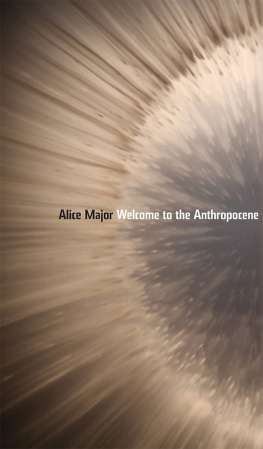
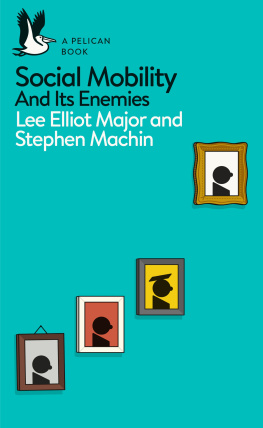
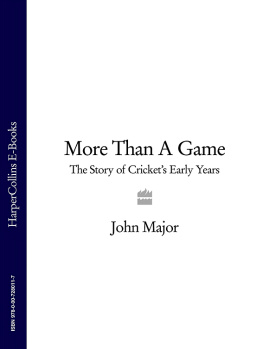
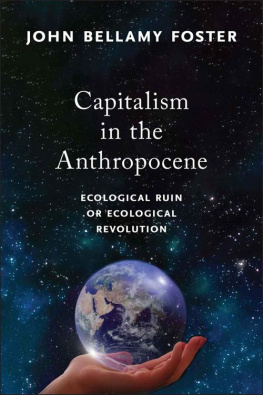
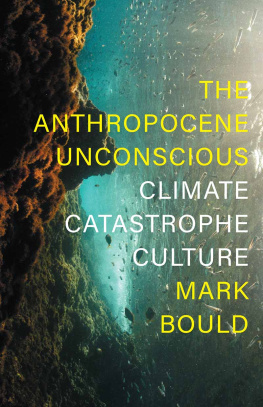
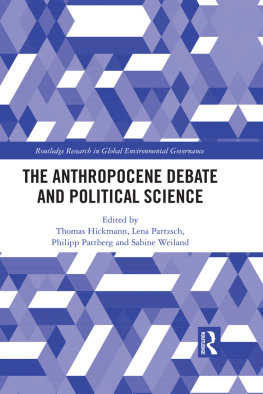
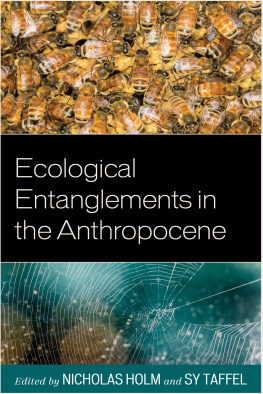
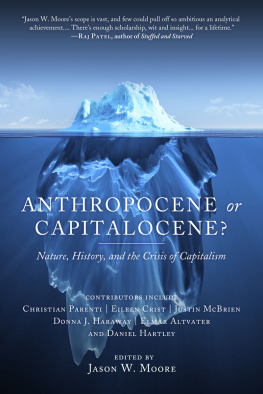
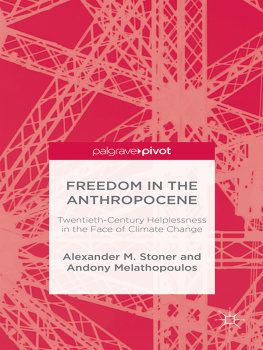
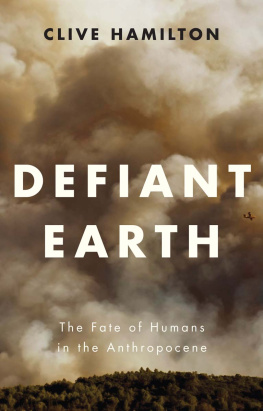

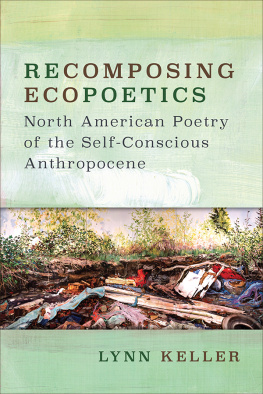
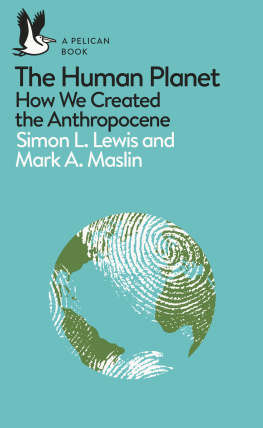
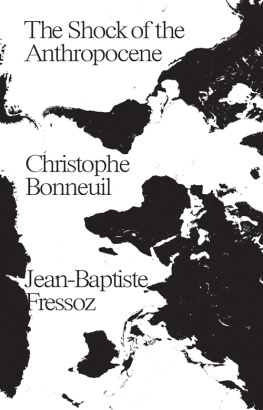
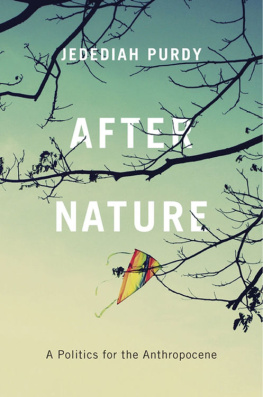
 For David, again and always Contents
For David, again and always Contents  In medias res Alas poor child, youre born in medias res the stage is set with swirling depictions of a globe in panic, small rainbow-coloured frogs hopping into oblivion, a scene of smoggy atmospheres, vast gyres of plastic churning in the ocean, Scylla and Charybdis, sailors screaming from their boats, soldiers raising fists, battle-dressed for costumed wars. And you have got to figure out the script. Its that recurrent nightmare of being unprepared, of never having studied and now its curtain time. That dream is just our human situation the only plot weve got in this play without an author. Were writing it ourselves. And I cant help you.
In medias res Alas poor child, youre born in medias res the stage is set with swirling depictions of a globe in panic, small rainbow-coloured frogs hopping into oblivion, a scene of smoggy atmospheres, vast gyres of plastic churning in the ocean, Scylla and Charybdis, sailors screaming from their boats, soldiers raising fists, battle-dressed for costumed wars. And you have got to figure out the script. Its that recurrent nightmare of being unprepared, of never having studied and now its curtain time. That dream is just our human situation the only plot weve got in this play without an author. Were writing it ourselves. And I cant help you. Welcome to the Anthropocene In pride, in reasning pride, our error lies; All quit their spheres and rush into the skies. ALEXANDER POPE, An Essay on Man Welcome, you line of dogs whose sizes span the gamut from gargantuan Great Dane to Lilliputian chihuahua. And welcome, Freckles the goat, to our expanding album of post-natural creation your milk seeded with proteins from arachnid silk, orb-weaver spiders woven in your genes.
Welcome to the Anthropocene In pride, in reasning pride, our error lies; All quit their spheres and rush into the skies. ALEXANDER POPE, An Essay on Man Welcome, you line of dogs whose sizes span the gamut from gargantuan Great Dane to Lilliputian chihuahua. And welcome, Freckles the goat, to our expanding album of post-natural creation your milk seeded with proteins from arachnid silk, orb-weaver spiders woven in your genes.